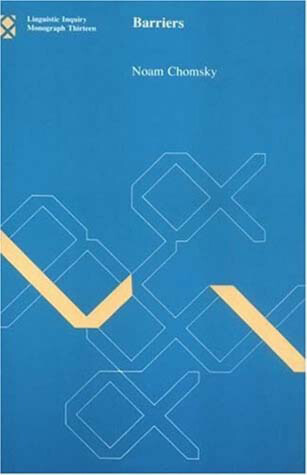Linguistic Inquiry Monographs
1 primary work
Book 13
This monograph explores several complex questions concerning the theories of government and bounding, including, in particular, the possibility of a unified approach to these topics. Starting with the intuitive idea that certain categories in certain configurations are barriers to government and movement, it considers whether the same categories are barriers in the two instances or whether one barrier suffices to block government (a stricter and "more local" relation) while more than one barrier inhibits movement, perhaps in a graded manner. Any proposal concerning the formulation of the concept of government has intricate consequences, and many of the empirical phenomena that appear to be relevant are still poorly understood. Similarly, judgments about the theory of movement also involve a number of different factors, including sensitivity to lexical choice. Therefore, Chomsky proceeds on the basis of speculations as to the proper idealization of complex phenomena - how they should be sorted into a variety of interacting systems (some of which remain quite obscure), which may tentatively be put aside to be explained by independent (sometimes unknown) factors, and which may be considered relevant to the subsystems under investigation. Barriers considers several possible paths through the maze of possibilities that arise. It sets the subtheory context (x-bar theory, theory of movement, and government) for determining what constitutes a barrier and explores two concepts of barrier - maximal projection and the minimality condition - and their manifestations in and implications for proper government, subjacency, island violations, vacuous movement, parasitic gaps, and A-chains.
Barriers is Linguistic Inquiry Monograph 13.
